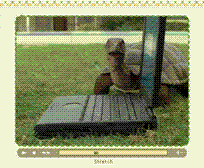A full day and I need some help
Tomorrow promises to be a full day of heavy thinking and not because I'm getting in a stack of papers. As mentioned earlier, I'm taking on that hour-long workshop after school to introduce some colleagues to the potential of web 2.0. I'm ok there.
However, I'm also scheduled to participate in a release day with two other teachers to begin putting the finishing touches on our school's honor's option for our heterogeneously-grouped 10th grade classes. We've already laid out the skeleton (dates, general overview, some specific content areas) on a wiki I set up in the fall. Now it's down to the details so it can implemented equally by the five sophomore English teachers (me included!). Basically we need to illustrate on Thursday what this thing will look like in the classroom. That's where the call for help comes in.
Philosophically, I believe that offering an honors option will best serve all our students in the non-tracked classes. Too often I think we have neglected the higher achieving students in these classes, typically because they stand out among their peers. We need to do more to challenge them, just as if they were in an honors course. Forget the growing pressure from parents and colleges to pad transcripts with AP and honors courses, I'm talking about pedagogically-sound instruction that reaches as many students as possible. However, just what an honors curriculum should look like is a matter of debate. Can a student receive rigorous instruction and challenging assignments in a class that also contains some lower achieving students? Do the socializing benefits of heterogeneity outweigh the inequity that can arise in such settings? Technology must be part of the equation, but exactly how?
Right now, it's an experiment in planning stages. I have been unable to find too many examples of schools who offer a similar challenge. The details we work out tomorrow, putting the policies and procedures in place for next year, are going to help determine just how successful this can be. We need to be ready for the difficulties that will arise, and be careful not to overtax the teachers in the course to the detriment of other students. It's a vexing challenge. But one I am willing to undertake.
That being said, I'd love to hear from some others in the edublogosphere about this issue and move this discussion beyond my building. The outline for English 10 is all spelled out here for anyone (hint, hint) to peruse. Suggestions for going forward? Thoughts on our approach? ...









